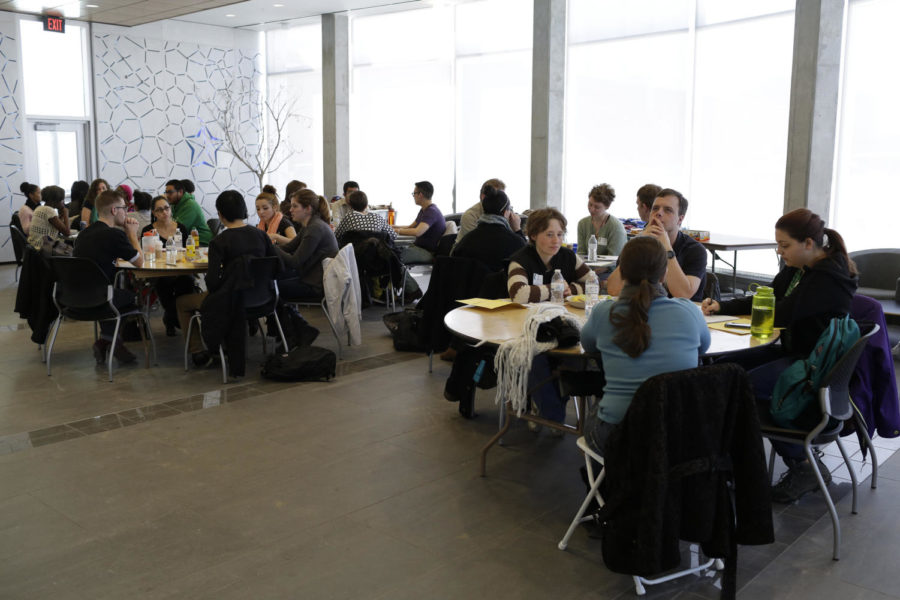Social Justice Summit teaches students to be change agents
Brian Achenbach/Iowa State Daily
Attendees of the Social Justice Summit get together in small groups to discuss the past exercise and how social economic status effects opportunities.
February 23, 2019
Students came together for Iowa State’s eighth annual Social Justice Summit on Saturday.
Speakers at the summit covered topics including intersectionality, implicit bias and microaggressions, white supremacy and power, privilege and oppression. Attendees also had the opportunity to form their own action plan that will aid them in being agents of change on campus.
One of the main themes of the summit targeted the question, “what does it mean to be an agent of change?”
Janae Due, a graduate student in the school of education who serves on the Social Justice Summit Committee, explained that they wanted the summit this year to be an accessible place for people with different understandings on social justice to come together and have an active conversation.
“So asking that question — what does it mean to be an agent of change — some people might not have an answer, and that’s why they’re here,” Due said. “Some people have a great passion, and that’s why they’re here, but for us it brings people together to ask that question and to try to form an answer together.”
One way Iowa State students can be agents of change is to be advocates for social justice in their everyday lives.
“I think Iowa State students can be advocates for social justice in a lot of different ways, starting with the very thoughts that they have … or having a conversation with someone and even if [they] recognize that what they’re saying is problematic or that’s really exclusive to people’s identities, that’s already creating yourself as an agent of change,” said Sarah Kaden, a graduate student in the school of education.
Kaden works for the Leadership and Service Center in the Student Activities Center, and some of her main roles include planning the logistics of the Social Justice Summit and forming the committee. The committee is composed of staff from the Student Activities Center, the Department of Residence, the Office of Multicultural Student Affairs and the Sloss Center for Women and Gender Equity.
The committee organized this day-long workshop for students to leave Iowa State more equipped to face social justice issues than when they came.
“I hope students just feel … some sort of empowerment to go and make change or they feel huge amounts of uncomfortability because they’re acknowledging that these things exist and these systems exist,” Kaden said.







